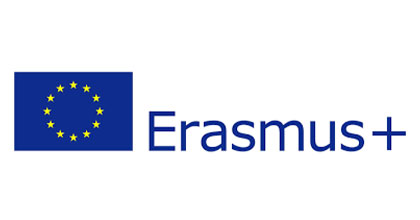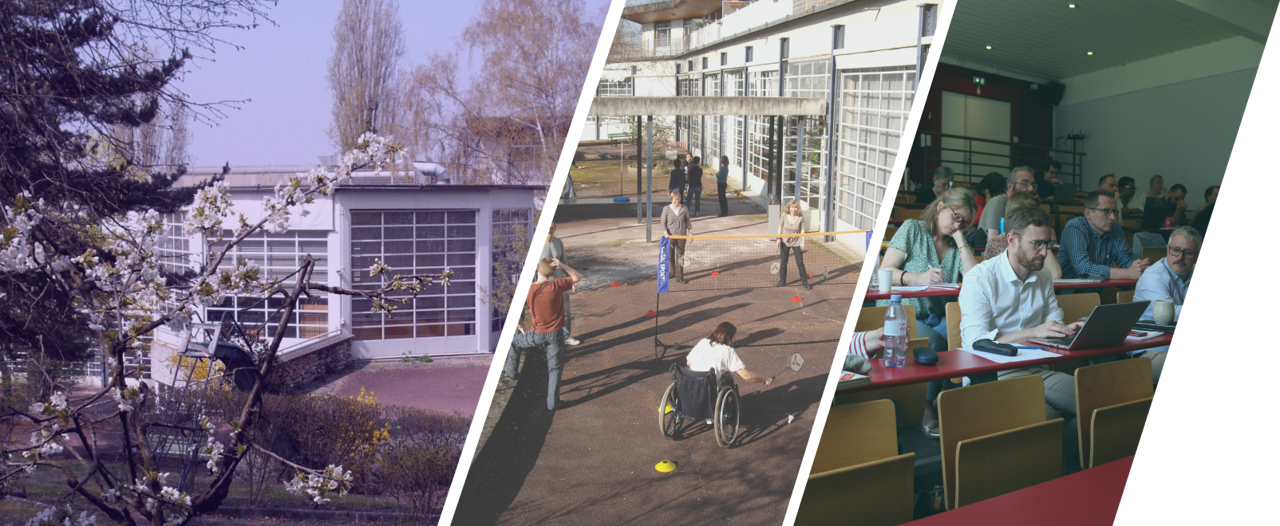
Accès à l’emploi des personnes déficientes intellectuelles.
Projet Erasmus+ : Partenariat stratégique de l’enseignement et la formation professionnelle.
Argumentaire
Bien qu’aux termes de l’Article 27 de la Convention relative aux droits des personnes handicapées, « Les Etats… reconnaissent aux personnes handicapées,…le droit au travail, notamment à la possibilité de gagner leur vie en accomplissant un travail librement choisi ou accepté sur un marché du travail et dans un milieu de travail ouverts, favorisant l’inclusion et accessibles aux personnes handicapées ;...en prenant des mesures appropriées, pour notamment………. leur permettre d’avoir effectivement accès aux programmes d’orientation technique et professionnel, aux services de placement et aux services de formation professionnelle et continue offerts à la population en général ;…….. », en France, comme dans les autres pays européens la proportion des personnes sans emploi est deux fois plus élevée parmi les personnes handicapées que parmi les personnes valides. Au sein de cette catégorie, les personnes présentant une déficience intellectuelle sont encore plus défavorisées. Pour celles-ci, accéder à une formation professionnelle susceptible de déboucher sur un emploi relève est un défi que le Projet ACCESS entend relever. Composé de 4 partenaires de 3 pays différents, le Projet rassemble chercheurs, centres de formation et associations en lien direct avec des personnes handicapées. Il est innovant car il réunit au sein de « comités pays » quatre acteurs qui n’ont pas l’habitude de travailler ensemble : les jeunes en situation de handicap, les familles, les formateurs et les employeurs. L’objectif est d’instaurer une méthodologie de travail collaborative afin d’améliorer l’engagement et l’autonomisation des participants.
Durée : 2 ans (1/09/2016-31/08/2018)
Partenaires : INSEI (porteur), GEIST 21, NATIONAL DEVELOPMENT TEAM FOR INCLUSION (NDTI) et INSTITUTO POLITECNICO DE PORTO (IPP)
Des visites d’études d’une durée de 5 jours chacune seront organisées dans les 3 pays avec pour objectifs :
- Permettre aux formateurs et aux employeurs de découvrir les « bonnes pratiques » mises en place par les centres de formation des autres pays, contribuant ainsi à l’élaboration d’une charte comparative (par INSEI) et du guide final de bonnes pratiques par tous les partenaires ;
- Permettre aux jeunes de découvrir d’autres méthodes de formation ou d’enseignement, de rencontrer leurs pairs, de se sensibiliser à une autre langue, une autre culture,…particulièrement pour cette catégorie de jeunes ayant moins d’opportunités de voyager ;
- Participer à la construction d’un réseau européen de centres de formation professionnelle et d’apprentissage ;
- Permettre au chef de projet et son assistante de construire la charte comparative et le guide des bonnes pratiques.
Principal résultat : création d’un guide des bonnes pratiques relatives à l’accès à une formation professionnelle continue. Ce guide sera élaboré à partir de la charte comparative et des autres outils créés et des visites d’études. Il sera traduit en anglais et en portugais et sera également adapté avec la méthode Facile à lire et à Comprendre (FALC) afin que les personnes en situation de handicap puissent l’utiliser.
Impacts
- Impacts directs pour les membres des comités pays et des participants aux visites d’études.
o Pour le groupe cible (les formateurs et les employeurs) : Échange de bonnes pratiques et découverte d’autres méthodes d’enseignement et de formation ; utilisation d’un guide adapté aux personnes déficientes intellectuelles ; coopération et construction d’un réseau ;
o Pour les bénéficiaires ultimes (les jeunes) : Découverte d’autres méthodes de formation ; rencontre avec leurs pairs et découverte d’autres cultures et langues ; autonomisation et participation sociale ; inclusion et accès à l’emploi ;
- Impacts indirects pour les personnes non directement impliquées dans le Projet.
o Pour les centres de formation impliqués : Rencontres : découverte d’autres méthodes de formation ; utilisation du guide ;
o Pour le marché du travail : Amélioration du regard porté sur les personnes déficientes intellectuelles ;
- Impacts directs pour les partenaires : Coopération et réseau ; Amélioration de la recherche et méthodologie.
Ces multiples impacts vont dans le sens de la construction d’une société inclusive dans laquelle les personnes en situation de handicap sont reconnues comme aptes à tenir une position sociale et notamment sur le marché du travail. Access devrait ainsi contribuer à améliorer l’image négative dont souffrent les personnes présentant une déficience intellectuelle et à accroitre leur chance de participer socialement comme tout citoyen à part entière.
Pour en savoir plus, accédez au site web du projet Access (ouverture d'une nouvelle fenêtre).
![]()
![]()
![]()
![]()
ENGLISH VERSION
ERASMUS + PROJECT
Strategic Partnership for vocational Education and Training
Access to employment for people with intellectual disabilities
Argument
Although the Convention on the rights of persons with disabilities claims in its Article 27 “the right of persons with disabilities to work, on an equal basis with others; this includes the right to the opportunity to gain a living by work freely chosen or accepted in a labour market and work environment that is open, inclusive and accessible to persons with disabilities by enabling them, inter alia, …….to have effective access to general technical and vocational guidance programs, placement services and vocational and continuing training”, in France, as in other European countries, unemployment among disabled people is twice as high as in the general labour force. Amongst this category, the difficulties of persons with intellectual disabilities are even more acute. For them, gaining access to vocational training that can lead to a job is a challenge that the ACCESS Project intends to take up. Made up of 4 different partners from 3 countries this Project brings together research, training centers and associations directly working with people with intellectual disabilities.It is innovative in the sense that it brings together, in country committees, 4 stakeholders that are not generally used to working together: the young adults with intellectual disabilities, families, trainers and employers. The objective is to have them work in a collaborative and cooperative process, thus improving the empowerment and commitment of all the participants.
Duration : 2 years (1/09/2016-31/08/2016)
Partners : INSEI (holder), GEIST 21, NATIONAL DEVELOPMENT TEAM FOR INCLUSION (NDTI) and INSTITUTO POLITECNICO DE PORTO (IPP)
The 5-day study visits will be organized in the 3 countries with the following objectives:
- Permit trainers and employers to discover good practices put in place by training or vocational centers from another country, thus leading to the elaboration of the comparative chart (by INSEI) and the final guidebook by all partners,
- Allow the youths as learners to discover other training practices and learning methods, to meet their peers, to discover another language, culture,…. Especially for this category with very few opportunities to travel abroad;
- Participate to the construction of a network of European training and vocational centers.
- Enable the project manager and her assistant to draw up the comparative chart and the guidebook.
Main tangible result : creation of a guidebook for good practices in terms of support and access to education and ongoing vocational training. The guidebook will be based on the comparative chart, the study visits and the different tools created. It will be translated in the 3 languages (French, English and Portuguese) and will also be adapted in Easy-to-Read language so that persons with intellectual disabilities can use it.
Impacts
- Direct impact for the members of the country committee and the participants of the study visits.
o For the target group: trainers and employers: exchanging good practices and discovering other teaching and training methods ; Using a training guidebook adapted to intellectual disabilities ; Cooperating with the other parties and empowerment ; Building a network;
o For the ultimate beneficiaries ( young people): Discovering other training methods ; Meeting their peers in other European countries and discovering other cultures and languages ; Cooperation, social participation and empowerment ; Inclusion and access to employment.
- Indirect impact for other persons outside those involved in the Project.
o For the training centers which the young people attend, or in which the trainers work, or which participate to the study visits: Meeting other professionals ; Discovering other training methods and practices ; Using the guidebook.
o For the labor market: Hopefully, through the employers participating in the country committee, the project will have an impact on their views and will break down prejudices and assumptions surrounding intellectual disabilities.
- Direct impact for the partners : Cooperation and networking. Improving research and methodology.
This multiple impact will promote the construction of an inclusive society in which persons with intellectual disabilities are recognized as being capable of holding a position in society and particularly in the labor market.Access will thus contribute to improving the negative image which the persons with intellectual disabilities suffer from and will increase their chance to actively take part in society and become citizens with full rights.
To know more you can go to the project's website (opening of a new window)
![]()
![]()
![]()
![]()
